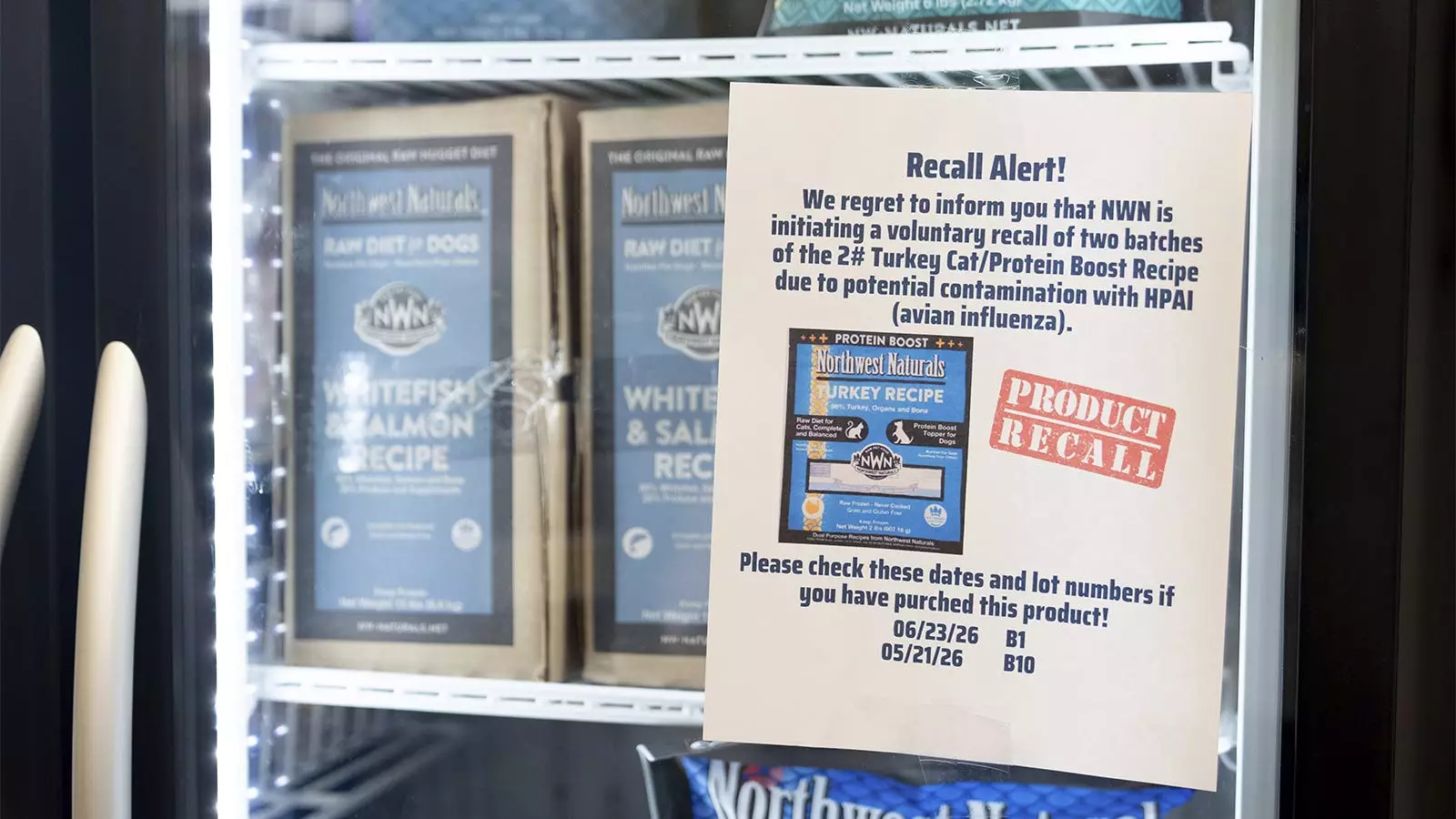Recent tragic events, including the death of a house cat in Oregon and a subsequent recall of pet food, have brought the issue of bird flu into sharp focus, highlighting the risks that this virus poses not just to avian species, but also to domestic pets. Bird flu, primarily associated with wild birds, has taken on a multi-faceted narrative over the years, infecting chickens, turkeys, and even cattle during its spread across the United States. Although human cases have been rare and typically connected to direct contact with infected animals, the situation raises urgent questions about how pet owners can safeguard their furry companions amidst this ongoing outbreak.
In March of this year, the first confirmed instances of the bird flu virus were observed in U.S. dairy cattle, marking a significant pivot in our understanding of the disease. Notably, health officials in Oregon discovered that a house cat had contracted the virus after consuming frozen turkey-based pet food that had been contaminated. This revelation points to a worrying trend where pets, especially cats, have become increasingly susceptible to the bird flu virus—specifically Type A H5N1. In fact, the virus has also been traced in multiple instances among varied feline populations, including domestic cats and those found in wildlife reserves.
Health authorities, particularly those in Los Angeles County, are actively investigating other cases where cats have exhibited symptoms linked to bird flu after consuming potentially infected products. The reality is that while dogs may appear less vulnerable to bird flu, the guidance remains consistent: pets should consume only properly cooked foods to mitigate the risk of infection.
One of the main takeaways from this alarming situation is the importance of scrutinizing what goes into our pets’ diets. A significant number of pet owners are adopting a raw food diet approach, which often includes unpasteurized dairy and raw meats. These choices are fraught with peril, as the bird flu virus and other pathogens can be transmitted through these raw products. Michael Q. Bailey, DVM, and the president-elect of the American Veterinary Medical Association, emphasizes that cooking meat or pasteurizing dairy effectively eliminates not only the bird flu virus but also many other harmful germs that could pose fatal risks to pets.
Owners are encouraged to be proactive in minimizing their pets’ exposure to potential allergens, predators, and disease vectors. By limiting access to wild birds and ensuring that cats do not roam outdoors freely, the likelihood of a bird flu infection reduces significantly.
Understanding the symptoms of bird flu in cats is crucial for early intervention and treatment. Symptoms may include loss of appetite, lethargy, fever, and behavioral changes that may indicate distress or illness. As Bailey describes, a cat that is usually active and playful but becomes excessively lethargic or isolated could very well be experiencing a serious health issue. Other observable symptoms include discharge from the eyes or nose, reddened eyes, and even severe respiratory difficulties such as labored breathing or, in extreme cases, seizures.
If you suspect your cat is showing any concerning symptoms, prompt consultation with a veterinarian is essential. It is also prudent to keep sick animals separated from other pets or individuals with weakened immune systems to prevent the potential spread of illness.
In light of the pet food recall, Northwest Naturals has taken precautionary measures by voluntarily recalling a batch of its 2-pound Feline Turkey Recipe raw frozen pet food due to contamination with the bird flu virus. Sold across several states and in British Columbia, this recall serves as a reminder of the broader implications of pet food safety. Owners who may have purchased the recalled products are advised to dispose of them immediately and to contact retailers for potential refunds.
The surge in bird flu cases among pets indicates a significant public health challenge, urging all pet owners to remain vigilant. Safeguarding pets requires informed decisions about their diets, monitoring for any unusual signs of illness, and maintaining proper hygiene practices when handling food. Through awareness and proactive measures, responsible pet ownership can help mitigate the risks associated with bird flu, ensuring a safer environment for our beloved companions.


Leave a Reply